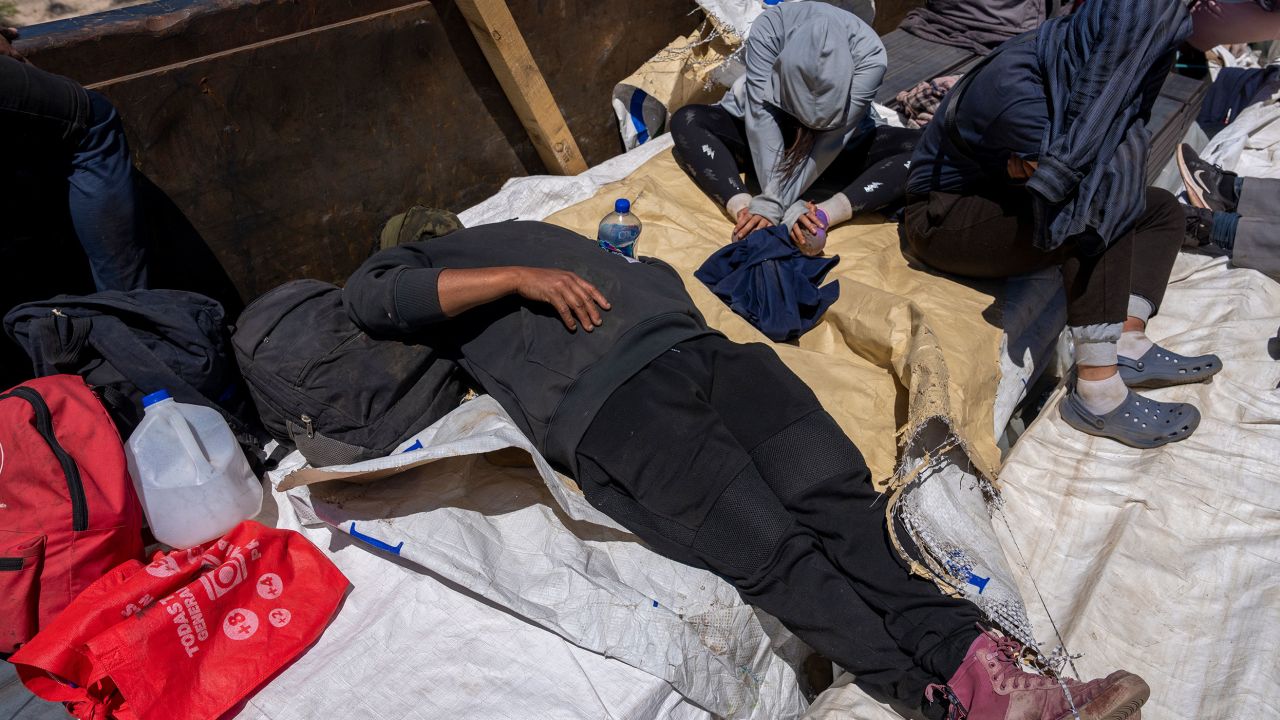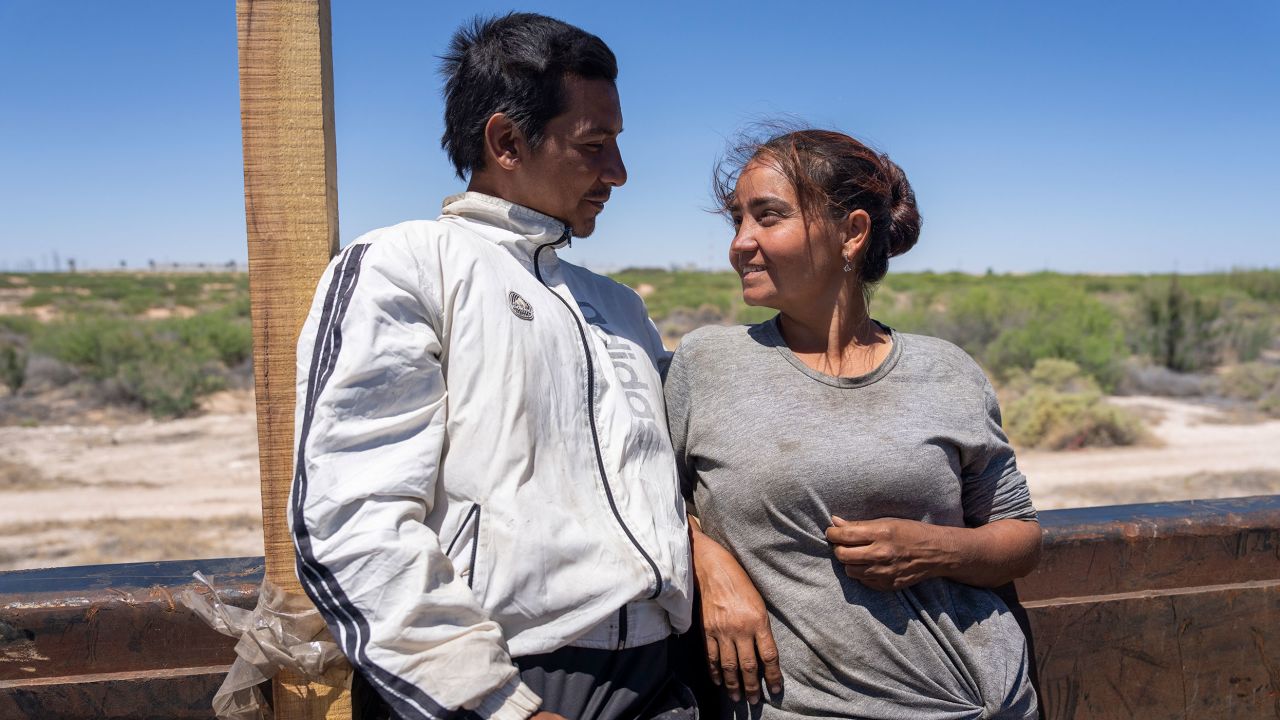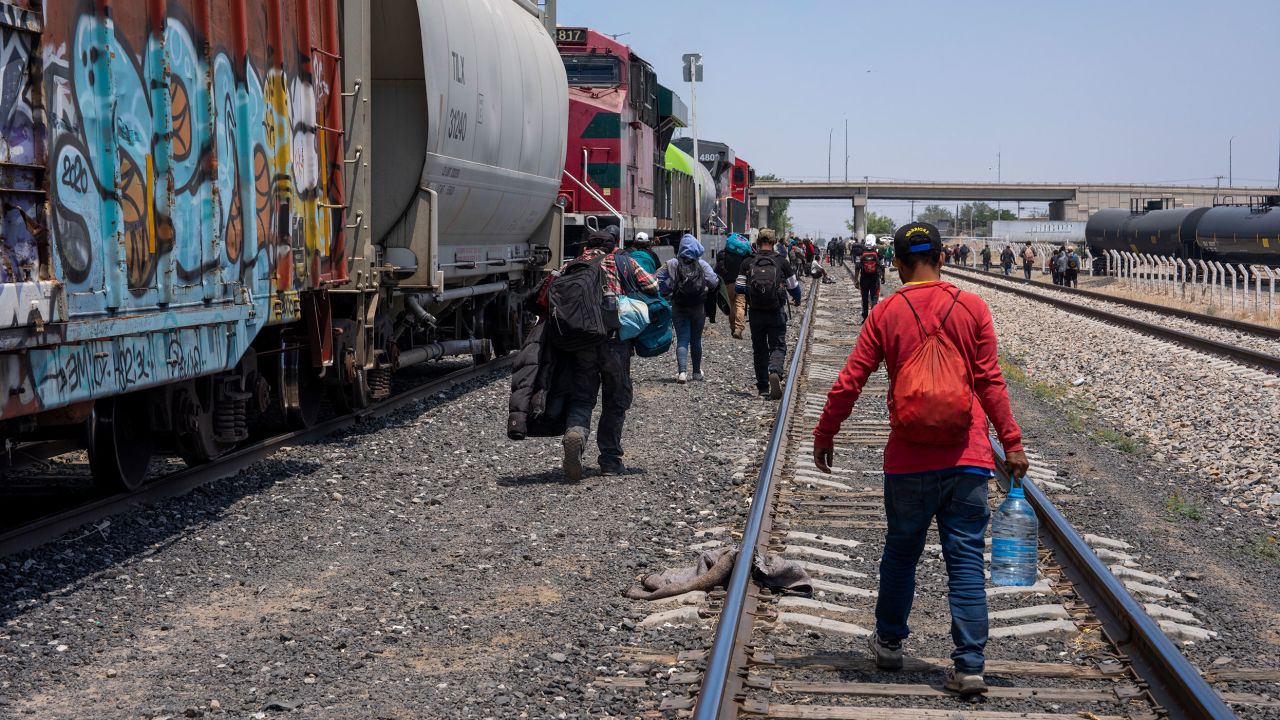Aboard a train heading to Ciudad Juarez, Mexico
CNN
—
On top of the rumbling freight train, the young man says he has been attacked and robbed. There is no shade from the burning sun in the day, nowhere to keep warm in the perishing cold of the night. But still, he says, this brutal journey is worth it.
Roberto, 23, told CNN he was escaping from Honduras, where the US State Department says violent gang activity is rife and police are ineffective.
“Due to crime in my country, we can’t work, we can’t do anything,” he said.
Roberto is one of the tens of thousands of migrants who have been making the perilous journey to the US-Mexico border ahead of Thursday night’s expiration of the Covid-era immigration rule known as Title 42.
Roberto fled the country with his two young children, he said, becoming emotional as he talked about them. “I brought them here to Mexico but they got sick, they almost died,” he said. “I had to send them back to Honduras.”
Roberto was still sick himself, wearing a mask to protect others from his coughs. He said this was the seventh train he had ridden on top of in the past 12 days as he, his father and his sister tried to find a new life. His sister is 15, he said. In other circumstances, she would be celebrating her quinceañera at home with friends and family. But home, for now, was an open train car heading north.
The truck contains metal construction beams, covered in plastic. There are a couple dozen people in this freight car alone, with dozens more riding on top of and within the other cars. The riders flatten cardboard boxes and use dirty clothing to try to give themselves some padding against the hard, uneven surface. But this is still the preferred kind of train car, as it at least offers some protection from falling off.

“You can’t sleep here,” Roberto said as he sat, buffeted by the wind, seemingly exhausted but determined as the train neared Ciudad Juarez, the town across the international border from El Paso.
He, his sister and his father, plan to try to cross into the United States this same day. They believe they have no reason not to.
The lifting of the US’s Title 42 pandemic-era immigration restriction on Thursday has raised concerns that more people will try to enter the United States. Title 42 allowed officials to quickly process people arriving and send many back across the border. The reinstatement of old rules may mean heavier legal penalties, but it is expected to be a longer process.
But the people on the freight train are not talking about US rule changes. Those we spoke with had the singular goal of escaping their countries and starting again in the US, whatever process they had to follow.
Crossing the border is as far as Felipe and Marcela have thought. The couple said they left Colombia, ready to sacrifice themselves for the five children they left behind.
“We don’t know for sure,” Felipe replied when asked where they would go. “We need to get there first, that’s the priority. Once there, we can see what to do, because we don’t have friends, family, anyone who can take us in.”

They said they suffered in the heat and the cold, and were hungry and thirsty. But their worst fear was the threat of violence, especially to women.
“The treatment of women is the worst and also dangerous,” Felipe said. “People get on the train, to look for women.” Marcela added: “Dangerous meaning rape, sometimes people get in looking for that.”
Wind pummels the people in the rail car. Many, like Roberto, are sick and coughing. As the train passed what looked like an incinerator, there was the smell of burning trash and a massive plume of smoke. At other times, the smell of sewage is overwhelming.
Travelers come from many different countries. We even met two from China.
For some of them, this is not their first attempt to get into the US.
Omar Zambrano said he left Venezuela six months ago to escape the crime and violence there, coupled with the economic crisis. “Living in Venezuela is chaotic. If you have breakfast, you don’t have enough money for lunch,” said Zambrano, a chef who said he would try any kind of work in the United States.
He has the address of a friend in Baltimore along with a printout in Spanish of all the circumstances under which he would be allowed to stay in the US.
He said he has tried and been sent back before. But he will try to cross the border again. “They ignore you when you’re trying to do it legally,” he said. “But let’s go for the legal way first to see what happens.”
After clambering down from the final train stop, Zambrano picked up his small bookbag, containing all he has on the journey and prepares to head to the border crossing, walking or perhaps on a truck.
“We are going to turn ourselves in, in the name of God,” he said, somehow wearing a smile under his sunglasses. “Faith moves mountains and you must not lose it.”
